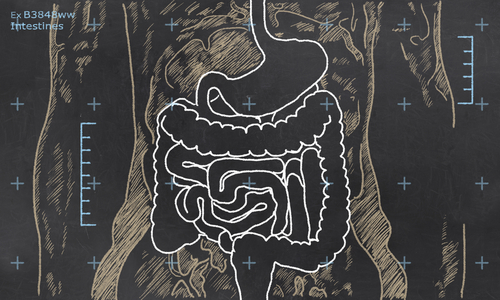This year, researchers from the Farncombe Family Digestive Health Research Institute at McMaster University (MU) in Canada, have released results from two preliminary studies showing that fecal microbiota transplantation (FMT) may be an advantageous choice when treating patients with ulcerative colitis (UC), a debilitating condition causing long-lasting inflammation and sores (ulcers) in the innermost lining of the large intestine (colon) and rectum.
FMT is a procedure in which fecal matter, or stool, is collected from a tested donor, mixed with a saline or other solution, strained, and placed in a patient, usually by colonoscopy, to replenish the patient’s population of ‘good’ bacteria throughout the colon.
The Studies
The first study, entitled, “Ecobiotherapy Rich in Firmicutes Decreases Susceptibility to Colitis in a Humanized Gnotobiotic Mouse Model,” was published in the April edition of Inflammatory Bowel Diseases, the official journal of the Crohn’s and Colitis Foundation of America. In this study, the researchers gave one group of mice gut bacteria from patients with severe UC and the effects were compared to those produced in mice that were given bacteria from a healthy person. The results from the comparative analysis showed that in the group of mice given gut bacteria from patients with UC, there was a reduced amount of the bacterial colonies that are considered important for gut health. Secondly, intestinal inflammation levels were higher in the mice with UC bacteria than in mice with bacteria from the healthy person, in whom the beneficial bacterial groups were abundant.
In a University press release, Dr. Elena Verdú, MD, PhD, Associate Professor, Division of Gastroenterology, Department of Medicine, MU, and senior study author, explains the importance of the study: “Our animal research provides insight that selected bacterial groups, involved in gut health, are important for protecting the colon against injury and inflammation. The study also showed that the same protective effect could be achieved using the fecal material from the healthy person as with specific groups of bacteria that were isolated from the ‘healthy’ fecal matter. This suggests that specific combinations of beneficial bacteria extracted from healthy people could be tested in future clinical fecal transplantation studies, and could potentially replace fecal matter.”
Dr. Verdú continues, “In addition to screening for infections and disease, donors that harbor an abundance of the beneficial bacterial groups identified in our study could be selected to increase the chances of success of transplantation.”
The second study, entitled, “Fecal Microbiota Transplantation Induces Remission in Patients with Active Ulcerative Colitis in a Randomized Controlled Trial,” was published in the April issue of the journal Gastroenterology. In this study, the researchers aimed to assess both safety and efficacy of FMT by recruiting 75 UC patients with a flare-up, and randomizing them to FMT therapy given as an enema derived from stool donated by an anonymous healthy donor once per week for six weeks, or a placebo consisting of a water enema. The findings showed that the administration of FMT induced remission in a significantly greater percentage of patients with active UC than placebo.
In a statement about the study’s findings, Dr. Paul Moayyedi, PhD, Professor, Division of Gastroenterology, Department of Medicine, MU, and lead study author, stated: “Many questions remain, but this provides interesting data suggesting that altering the gut microbial flora may be promising for treating ulcerative colitis.”

